Opinion
OF CONSPIRACY, CRITICISMS, AND WIKE’S AUDACIOUS ABUJA MAKEOVER
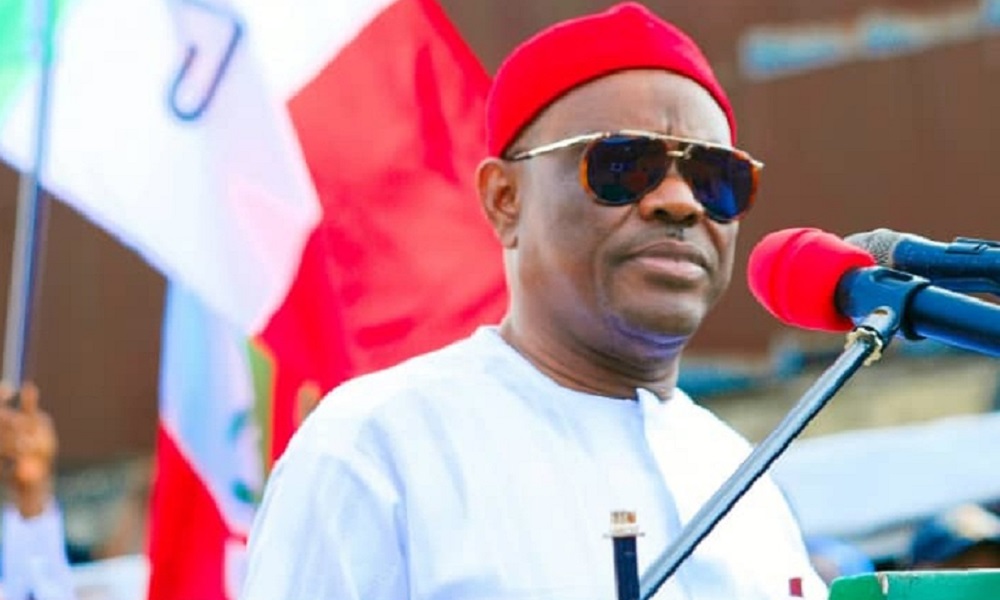
OF CONSPIRACY, CRITICISMS, AND WIKE’S AUDACIOUS ABUJA MAKEOVER
BY GILBERT BWANSHAK
In what looks like a carefully guided, fiercely forceful, and well-oiled campaign, there has been determined, deliberate efforts with the mandate to “pull down” and rubbish the person and works of the Minister of the Federal Capital Territory, Nyesom Wike. The one-line objective whose mandate is to de-market and make him unpopular, has remained dogged from timing and approach in achieving political mileage before, during, and after the “all important” National Executive Committee meeting of the Peoples Democratic Party, which held in Abuja. The unabated advocacy seems to have assumed a life of its own as anything, everything humanly possible is exploited to get the projected result.
So, in the past weeks, the media has been awash with opinions, analysis, and commentaries geared towards “pulling down” Wike. In most cases, admixture of jaundiced, unconvincing, distorted, and contrived stories and reports are rolled out. Arguably, as a result of the consistency of these attacks and innuendos, Wike has become the most trending name on the regular and social media. Unfortunately, the deluge of theatrical narratives and juvenile falsehoods released by some jejune, puerile, and out-of-trend leaders, and imaginary, comical, and faceless groups has defied every logic of reasonable thinking and moral standard.
To a large extent, the campaign seems to be the most attractive “cash cow” in the polity. With the speed at which people join the fray may have confirmed talks that pecuniary benefit is the driving force and not conviction. There are stories that an embattled Governor is allegedly bank-rolling the campaign, which has some double-faced personalities, and lawmakers with history of mercenary credentials as the “arrow-heads.” The modus operandi is to daily make, and sometimes invent disparaging statements against Wike to convey a “we-are-working” message to their pay master.
Despite the velocity of incongruous conspiracies, insidious criticisms, and consistent visibility in the media, the campaign is yet to achieve it’s purpose of soiling Wike’s credibility and crashing his political stock-value. The viciously wicked desire of making him lose track of realizing President Tinubu’s “Renewed Hope” agenda in FCT is not yielding results. Regardless the fiscal, physical, and human exertions, the table has not turned against the Ikwerre-born politician. Messages used are regurgitation of old, same and stale tales. Conveyers have believability and acceptability baggages. The concomitant result of this is continued failure.
Surprisingly, Wike is unruffled and unperturbed about the gale of attacks against him by political adversaries across the country, particularly from his home state. Like a battle-tested and war-veteran victorious general, he has stood up to every challenge. Often derided and deluded by political opponents who variously describe him as boastful, rabble-rouser, and crude but he has always shown, at the end of every battle that he is miles ahead of them. Not minding the coalition of forces, depth of controversies, and deep-seated animosity against him, Wike emerges triumphant. The ease, simplicity, and calmness he wins usually confounds dispassionate Nigerians, apolitical chroniclers of events, and objective opponents. How he has being able to combine these battles with the responsibilities of administering the FCT will make resourceful studies in political brinkmanship, hands-on leadership, and purposeful governance.
That his name featured on Tinubu’s ministerial nominees-list became subject of discourse among Nigerians. Some PDP members who still harbour the pains of losing the last presidential election which they attribute to “Wike’s intransigence” appeared worse hit. That he was deployed to the sought-after and heavily-coveted FCT generated bigger discourse within the polity. To some who see the portfolio as “birth right” largely due to unbroken appointments of their “sons” as successive ministers, Wike’s choice is classified an “anomaly and aberration.” Some members of the ruling All Progressives Congress, APC, keeps wondering why a prominent member of an opposition political party is given such juicy and sensitive position. To some PDP faithful, his appointment portends danger for the party, and it’s continued relevance in Nigeria’s politics.
Somehow, the writer is flummoxed about such loss of historical memory among many Nigerians, particularly “celebrated” columnists, politicians, and analysts. Could it be deliberate falsehood, mischievous misinformation or early stages of senility? That Tinubu, who upon declaration as president-elect promised to run “a government of national competence” went ahead to name Wike a member of his federal executive council is not new. Obasanjo, in 1999 did same in his “government of national unity.” He appointed leading opposition members into his cabinet. Late Chief Vincent Ogboluafor, prominent member of the All Peoples Party; which later became All Nigeria Peoples Party became Minister of Economic Affairs (later Special Duties); Late Senator Mahmud Waziri, who was a senior member of APP (ANPP) was named Presidential Adviser on Inter-Party Relations; Late Chief Bola Ige of the Alliance for Democracy was Minister for Power (later Justice). Like Obasanjo did in 1999, Tinubu replicated by enlisting people with requisite competencies and proven capacities into his government. In achieving this, party affiliation and political lineage took back stage.
Many Nigerians believed that between 2015 and 2023, many of the ministers in Buhari’s administration had low ratings in terms of service delivery in their respective areas of jurisdiction. However, Mohammed Musa Bello, immediate past FCT Minister may be in strong contention for the least performing minister award. Under his watch, the FCT experienced muted growth. The satellite towns were worse off. Lack of vision and negative political will largely contributed to the gargantuan infrastructural decrepit, inept bureaucracy, insecurity, and societal challenges that envelope the FCT. Some residents tend to believe that given his style of administration and body language, he may have exited as the worst occupier of that office.
Aware of the strategic position of Abuja in Africa’s leadership, and conscious of the need to make the city a befitting capital, Tinubu decided to do the right thing by posting Wike to the FCT. Also, given the glaring infrastructure deficit and multi-sectoral development challenges in Abuja, Tinubu may have settled for Wike, under whose tenure as Governor transformed Rivers to a modern, uniquely beautiful, and enticing state. Somehow,
the gregarious, sagacious, and indomitable spirit of Wike to assignments and relationship may have further worked in his favour. As the capital of Africa’s most-populous country, Abuja in dire need of transformation needed someone with experience and exposure to bring life to the city-centre and the satellite towns. That Wike ticks all the boxes is not in doubt. At every position; Local Government Chairman, Chief of Staff, Minister, and Governor his passion for hard work and commitment to effecting positive change has been obvious. He has always exhibited extraordinary skills, evolved uncommon leadership attributes, and recorded superlative strides at every juncture of his eminent public service career.
Drawing from his past experiences, Wike in few months has justified his five-star rating as “Mr. Project.” Abuja is now a huge “construction city” as numerous infrastructure works are going on simultaneously. Driving through the capital city, many construction firms are now involved with different projects. Unlike the comatose state under the last administration, the chain effect of this new development has been encouraging. Engineers, technicians, artisans, labourers, traders, drivers, food vendors and more now experience renewed activities and boost to their economic state and personal development. Residents and visitors to Abuja, on a daily basis see gradual transformation works on-going in Wuye, Asokoro, Berger, Wuse 2, Gwarimpa, Life Camp, Wuse, and other Districts. Bwari, Kuje, Abaji, Kwali, and other satellite towns and communities are not left out.
Prior to his assumption of office, the FCT was experiencing numerous security challenges. Kidnappings, violent robberies and negative occurencies became daily routine. From the city-centre to the satellite towns, people lived in fear, anxiety, and confusion. After weeks of planning, through the provision of security and surveillance systems, result-yielding synergies among security agencies, and requisite political will by Wike; with the huge support of Tinubu there is improved security in the FCT. His experience in education has also paid off in the sector. With special focus on capacity building, facilities and welfare, there is marked improvement in education. In addition to these, the massive promotion of staff, payment of outstanding allowances, arrears, and other emoluments, award of scholarship to over 130,000 indigent students, and on-going construction and upgrade of over 50 public secondary schools has energized the sector. Not forgetting the on-going facelift of Gwagwalada, Wuse, and Gwarimpa General Hospitals, just as Nyanya and Asokoro are expected to commence soon, and that of Utako will follow as every contractual infractions has been resolved.
It must be stated that the accelerated infrastructural upgrade and projects construction in the FCT is largely attributable to Wike’s ingenuity and wholesale-support of Tinubu. Replicating the Rivers model, he was able to convince and got presidential approval for the removal of the FCT from TSA, and commitment of FCT’s IGR to many of these projects. Also, he got Tinubu’s go-ahead to create the FCT Civil Service Commission; appointment of the Chairman and Board Members of the Commission; appointment of FCT’s Head of Service and 10 Permanent Secretaries. A legislation to these bureaucratic changes was said to have been passed in 2018 by the National Assembly but suffered implementation hiccups largely due to lack of political will by the previous administration. Through approvals of promotions; payment of outstanding allowances, bonuses and other emoluments and other staff-focussed initiatives, there is improved optimism, enhanced service delivery, and positive shift in the morale of the over 8,000 staff in the FCT.
Indeed, residents of Abuja and regular visitors are impressed, wondering the strategies Wike has deployed in embarking on such infrastructural, institutional, economic and social architecture in Abuja, few months in office. With achievements recorded, thus far across the city-centre and satellite towns, he has clearly gone beyond the functions and responsibilities of the FCT Minister as enshrined in Section 302 of the 1999 Constitution of the Federal Republic of Nigeria (as amended). To many people, Wike, in few months has out-performed his predecessors and enthroned new threshold of outstanding achievements that may be the necessary compass for assessing and evaluating those after him and the public service generally.
Demonstrating untiring gusto, inexorable fervour, and unapologetic passion in bequeathing residents and visitors with high-standard facilities, and re-positioning Abuja’s status as the true “Africa’s event-city” Wike has, in several ways confirmed that he is truly “Mr Project.” Tinubu deserves commendation for his choice of the Rivers-born enigmatic politician to the FEC but more importantly, posting him to the FCT. It is expected that Wike will continually justify the confidence and trust reposed in him by ensuring that he breaks new grounds, set higher standards of performance in the delivery of projects and services in the FCT, and remain an invaluable, reliable, and dependable asset in the Tinubu administration.
* GILBERT BWANSHAK, an Abuja based public affairs analyst
Opinion
5G,IoT and AI to boost global GDP by 2030

By Sonny Aragba-Akpore
With Mobile technologies and services now generating around 5.8% of global Gross Domestic Product (GDP) a contribution that amounts to about $6.5 trillion of economic value, there are strong projections that by 2030, this figure will rise to almost $11 trillion, or 8.4% of GDP.
Global System of Mobile Communications Association (GSMA) says much of this will be driven by countries around the world increasingly benefiting from the improvements in productivity and efficiency brought about by the increased take-up of mobile services and digital technologies, including 5G, Internet of Things (IoT) and Artificial Intelligence (AI).
The GSMA recently introduced the 5G Connectivity Index to provide insights into 5G performance in 39 markets in order to encourage informed decision-making.
In terms of Economic Impact,
the GSMA emphasizes the economic benefits of mobile technologies and services, including 5G, projecting that they will contribute significantly to GDP growth by 2030.
“The GSMA provides specific reports and analyses on 5G in different regions, such as Sub-Saharan Africa, Asia ,Middle East among others highlighting the progress and challenges of 5G deployment in specific areas.”
In Sub Saharan Africa for instance with particular attention on Nigeria,South Africa,Egypt,Kenya and Botswana among others some measure of progress in deployment has been recorded.
The rollout of 5G has brought immense benefits across multiple industry sectors, particularly those involving internet of things (IoT) and artificial intelligence (AI) applications in which the real-time transfer of data is crucial.
More broadly, the adoption of 5G is expected to accompany increased data use across the globe, with forecasts anticipating mobile data traffic of over 300 exabytes per month by 2030, more than twice the volume consumed in 2024 according to Statista.
And with a third of global population expected to be covered by this fifth generation (5G) networks ,a technology that has defined new ways of communication by 2025 ,GSMA
says the technology has surpassed growth projections of all times.
“5G subscriptions increased by 163 million during the third quarter 2024 to total 2.1 billion. 5G subscriptions reached close to 2.3 billion by the end of 2024 accounting for more than 25 percent of all global mobile subscriptions.
“4G subscriptions continue to decline as subscribers migrate to 5G” according to GSMA.
As of the first quarter of 2024, there were nearly two billion 5G connections worldwide, with 185 million new additions. This is expected to grow to 7.7 billion by 2028.”
Statistics show that 5G is the fastest-growing mobile broadband technology, reaching 1.5 billion connections by the end of 2023.
It only took four years to reach this number, compared to 10 years for 3G and more than five years for 4G.
“5G is more than a new generation of technologies; it denotes a new era in which connectivity will become increasingly fluid and flexible.5G Networks will adapt to applications and performance will be tailored precisely to the needs of the user” GSMA submits.
By covering one-third of the world’s population , impact on the mobile industry and its customers will be profound according to GSMA.
To deepen the spread of 5G ,GSMA is working closely with the mobile operators pioneering 5G, “by engaging with governments, vertical industries including automotive, financial services, healthcare providers, transport operators, utilities and other industry sectors to develop business cases for 5G.”
And In order to accelerate the growth and spread, many operators are said to be deploying
AI technology as part of an integral part of telecoms operators’ strategic and operational plans.
“Operators are making important advancements in the deployment of AI technology, which is serving as a transformative force shaping the telecoms industry. By deploying autonomous AI-based systems, operators can enhance operational efficiency, customer satisfaction and security, while also creating new revenue opportunities”.
China, South Korea, the United Kingdom, Germany, and the United States are the leading countries with robust 5G coverage in the world.
Since the first commercial launches of the fifth generation of mobile networks in late 2018, these five countries have emerged as leaders because multiple companies in these countries have deployed networks and are selling compatible devices. Countries including Switzerland and Finland are up and comers in 5G development, though they have limited deployment.
In China there are three Companies leading in deployment.
The world’s largest 5G network was launched by the three largest Chinese network operators Oct 31, 2019, according to the state-run news agency Xinhua. These are China Mobile, China Unicom, and China Telecom which all activated their networks in less than five months after they were issued 5G licenses.
Each of the network operators offered their 5G services at $18 per month in 50 Chinese cities at the beginning of the launch.
GSMA expects 36% of China’s mobile users to be using 5G by 2025. That’s about 600 million subscribers, who would also make up 40% of the entire global 5G market by this year.
This is all despite efforts made by the United States government to hamper the progress of Chinese vendors, though those efforts may affect how Chinese companies may expand into the global market.
In South Korea,SK Telecom and Korea Telecom run as the main competitors for the South Korean 5G market.
SK Telecom acquired spectrum in the 3.5 GHz and 28 GHz frequencies to prepare for deploying 5G.
In April of 2019, the Enterprise claimed to be the first mobile carrier in the world to launch 5G services to work on 5G smartphones. SK Telecom asserted an edge over rival Verizon, as the former launched 5G services available at the same time as Samsung Galaxy S10 5G smartphone launched in South Korea. Verizon launched mobile 5G services in the U.S. before a 5G enabled smartphone was available to U.S. consumers.
SK Telecom also conducted tests with a 5G Standalone (SA) Core (a core not reliant on the 4G network) for their 5G network in cooperation with Samsung Electronics.
The world’s largest 5G network was launched by the three largest Chinese network operators Oct 31, 2019, according to the state-run news agency Xinhua. These are China Mobile, China Unicom, and China Telecom which all activated their networks in less than five months after they were issued 5G licenses. Each of the network operators offered their 5G services at $18 per month in 50 Chinese cities at the beginning of the launch.
“What we are seeing is a concerted effort by the Chinese — the operators, vendors, and government regulators — to deploy 5G as quickly as possible,” Chris Nicoll, principal analyst at ACG Research, pointed this out in a November 1, 2019 SDxCentral article.
With all of these players working together, the three network operators had collectively deployed nearly 86,000 5G base stations peaked over 130,000 by the end of 2019. The latter number breaks down into China Unicom and China telecom, with each planning to install 40,000 base stations, and the market leader China Mobile to install 50,000.This was the projection by 2019 but they have since overshot this by the beginning of 2024.
The International Telecommunication Union (ITU), says 5G coverage reached 40% of the world’s population in 2023 with an uneven coverage and distribution with developed countries having more coverage than low-income countries:
In Europe ,68% of the population is covered and
Americas had 59% of the population covered while
Asia-Pacific has 42% of the population covered as at 2023.
Arab States have 12% of the population covered.
Commonwealth Independent of States (CIS) had 8% of the population covered.
ITU figures show Africa,s coverage rose to 10 % of the population by 2023 .
The ITU also notes that 90% of the world’s population is covered by 4G, but 55% of people without access to 4G live in low-income countries because In low-income countries, 3G is often the only technology available to connect to the Internet.
The ITU develops and adopts international regulations and global standards to enable the harmonization and implementation of broadband mobile networks.
In Africa, around a dozen nations have launched services including Botswana, Kenya, Mauritius, Madagascar, Nigeria, Seychelles, South Africa, Tanzania, Togo, Zimbabwe, and Zambia but Africa is a patchwork of 54 countries.
And penetration is predicted to be slow.
By 2027, Ericsson predicts that 80 percent of phone users in Europe will have 5G service.
At the same time, 5G subscriptions in Africa, home to 1.4 billion people, May stagnate at a little over 10 percent. Why will so few people in Africa get access to 5G services?
China, South Korea, the United Kingdom, Germany, and the United States remain the leading countries with robust 5G coverage in the world.
While many countries are already providing robust services,Africa remains on the outskirts of 5G services.
The countries in Africa that have launched 5G networks, include South Africa with its roll out
In March 2022, when the Independent Communications Authority of South Africa (ICASA) sold spectrum across several bands.
In Nigeria,MTN rolled out commercial 5G services in Lagos in 2022, with other roll out in Abuja, Port Harcourt, Ibadan, Kano, Owerri, and Maiduguri among others.
MTN Congo announced that it was the first country in Central Africa to deploy 5G.
In Botswana Orange deployed 5G technology to provide new services in the Gaborone and Francistown regions.
Other countries in Africa that have launched 5G Fixed Wireless Access (FWA) services include: Angola, Kenya, Zambia, and Zimbabwe.
Analysts say “5G’s potential is growing due to its ability to deliver fiber-like speeds. However, there are still challenges in the region, such as:
Urban areas are reaching their maximum capacity whereas a large portion of the population lives in rural areas.
This explains why 5G adoption in the sub-Saharan region is currently below six percent “
Analysts report that 5G deployment in Africa faces many challenges, including Spectrum assignment,regulatory issues,infrastructure,security,financial resources among others.
“Spectrum is a limited resource that is already in use by other services, such as TV broadcasters and satellite operators. Governments need to open up frequencies and grant 5G licenses at reasonable prices. “
Infrastructure is another major challenge.
“5G networks require a large initial investment, including expensive devices, antennas, and Radio Access Network (RAN) hardware. The infrastructure needs to be fiberized to support 5G services.
Regulatory conditions also serve as challenges to deployment.
For instance “regulatory authorities may not have started the process for licensing and granting frequencies in the right portion “
“Most of the equipment and devices required for 5G deployment need to be imported.”
There are also security challenges that make
5G technology vulnerable to cyber security threats, such as tracking calls and exposing user locations.
Opinion
Right of Reply: THE PUNCH AND BUSYBODY BUSINESS

The recent declaration of a State of Emergency in Rivers State has triggered diverse commentaries from a wide range of Nigerians.
Almost everyone hailed the presidential proclamation because of the visible threat to law and order in the state at the time the action was taken. Of course, there were a few naysayers who read political meanings into an otherwise sincere and prompt intervention.
One such negative interpretation is the position taken by the Editorial Board of The Punch newspaper. In one of its editorials published on the matter, the national daily claimed that the entire crisis was caused by what it described as “the needless meddlesomeness in the governance of the state by its former governor and Tinubu’s Federal Capital Territory Minister, Nyesom Wike….” It is unfortunate that this narrative and others like it have become commonplace in the media space.
How did the Editorial Board of a reputable newspaper arrive at such a conclusion? Their claim that the Sole Administrator, Admiral Ibok Ete Ibas (rtd), has been acting a script purportedly written by the Minister of the Federal Capital Territory, Nyesom Wike, is also faulty and has no iota of truth.
They also faulted the sacking of all political appointees who served in Governor Siminalayi Fubara’s administration, insinuating that their replacements were drawn from Wike’s political camp. Again, nothing can be further from the truth.
Since his appointment as the Sole Administrator of Rivers State, Admiral Ibok Ete Ibas has been running the state with the abundant human resources available in the state and has not imported anybody from outside the state. Did the Editors of The Punch really expect him to run the administration with the politicians loyal to the suspended governor?
Do they not know that the crop of political appointees who served Fubara would have found it difficult to work with the Sole Administrator?
Certainly, they know the truth, but they have chosen to stoke the fire to generate more tensions in Rivers State.
Certain interests might have commissioned this editorial to cast aspersions on the Sole Administrator and raise doubts about his capacity to run the state.
It may also have been the handiwork of Wike’s political detractors, the man whom many politicians love to hate for no other reason than envy and jealousy.
We urge the Punch newspapers to seek a better mode of intervention in the political situation and not dwell on innuendos and unsubstantiated allegations against certain political actors in order to blackmail them.
Dr Ike Odogwu
Opinion
“Chief. Dr. Ekuogbe Akpodiete; A Philanthropist, Lawyer, and Statesman”
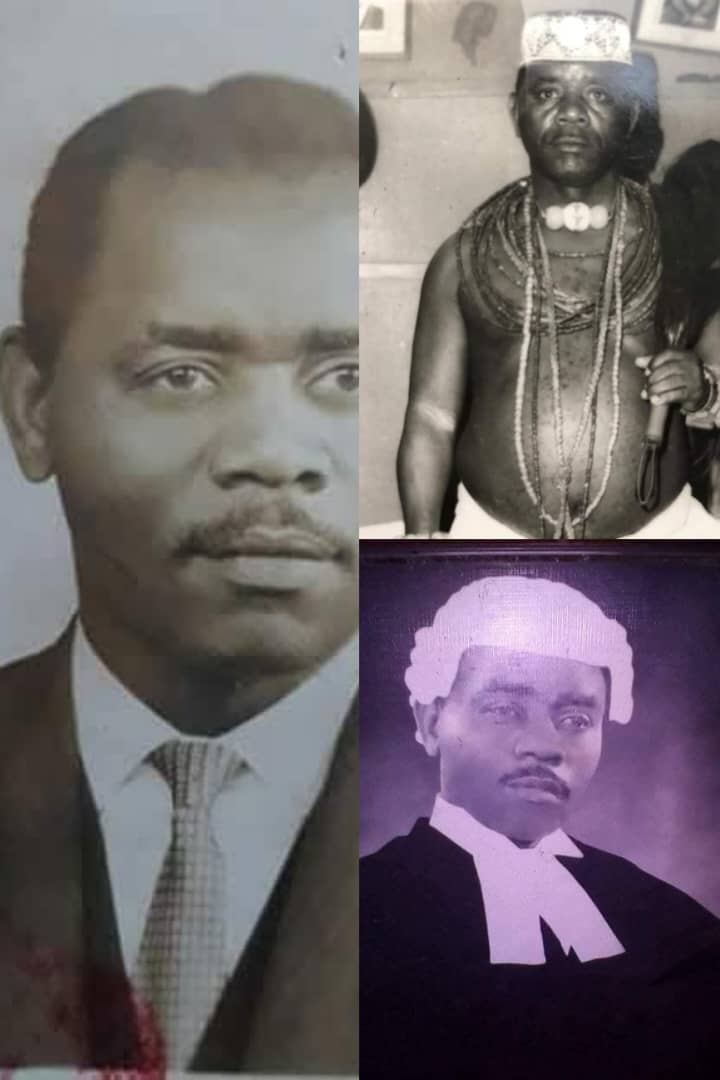
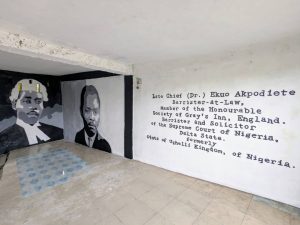
In a life of achievement, Chief Ekuogbe Akpodiete popularly called the Duke by his contemporaries in the UK was an assessment clerk, post office clerk, a court interpreter, an educationist, a business man, a political party chieftain, a Barrister and Solicitor, a Magistrate, the Otota (the Prime Minister) of Ughelli kingdom which is the highest traditional chieftaincy office that underpin the royal office of the Ovie of Ughelli Kingdom.
He was a trail blazer, a strict disciplinarian, a lover of people, and a philantropist. He saw to it that people lived in peace and happiness.
Born on the 4th of April, 1924, to parents cut from an industrious mould, Chief Ekuogbe Rowland Gregory Akpodiete took zealously to education that neither his mother Ughweriaka who was a trader, nor his father Akpodiete who was a farmer had.
He attended the Native Authority Primary School, Ughelli, and Enitona High School, Port Harcourt, for his secondary school education.
He thereafter had a brief teaching career in primary schools in Ofuoma near Ughelli, he worked as a process clerk in the then Sapele Township Department between 1950 and 1953, serving at the same time as an interpreter in the local courts.
He proceeded to the United Kingdom to seek the proverbial Golden Fleece where he worked and paid his way through, studying Law. He was admitted into the Honourable society of Gray’s Inn, England, in 1965, and shortly after, he returned home to Nigeria and attended the Nigerian Law School. He was called to the Nigerian Bar in 1966. He immediately started practice in Lagos. However, his practice in Lagos was regrettably abridged by the Nigerian Civil War, which drove him to his hometown Ughelli in 1967, where he continued to practise among his kith and kin as the first Legal Practitioner.
Chief Ekuogbe Akpodiete established himself in Ughelli. After the civil war, he served in the now defunct Mid-western State Judiciary from 1972 to 1975 as a Magistrate.
He was conferred with the chieftaincy title of Urhukperovie of Ughelli kingdom (the light of the King) by the then reigning Ovie of Ughelli, His Royal Highness Oharisi II of blessed memory in 1977.
In the quest for more knowledge, he went back to England for his Master’s degree in law (LL.M) and later a Ph.D. at the University of Warwick.
He was awarded an honourary doctorate degree (Ph.D) by Tenesse Christian University from the United States of America in 1991.
He became the Otota (the Prime Minister) of Ughelli Kingdom in 1986, an office he occupied until his demise on 9th April 1995.
Chief Ekuogbe Akpodiete was also politically involved. In the heady days of the Awolowo-led Unity Party of Nigeria, he was the party’s legal adviser in Ughelli and was on hand to assist during Chief Obafemi Awolowo’s campaign hosting in Ughelli and its environs.
In view of his love for people and entertainment, he established a popular cinema house, one of the first in Ughelli, known as REGA cinema, coined from his names, alongside an entertainment place called Unutakunu (people talk to people).
Chief Ekuogbe Akpodiete was blessed with wives and many children, grandchildren, and great grand children.
Mr. Olotu Akpodiete, PhD
Executive Director
Olotu & Ekuogbe Rowland Akpodiete foundation
-
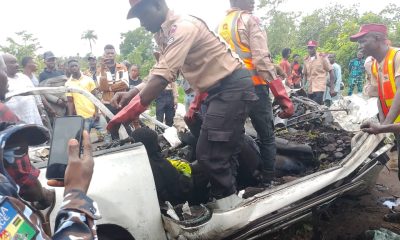
 News22 hours ago
News22 hours agoDouble tragedy: Father, three children, maid killed in Osun road crash
-
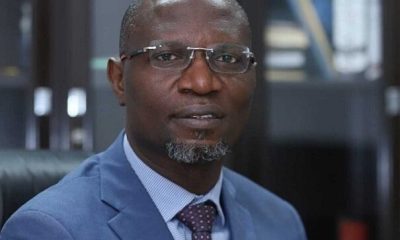
 News22 hours ago
News22 hours agoSAD! SEC DG says “we can’t recover N1.3trn Nigerians lost to CBEX ponzi scheme”
-
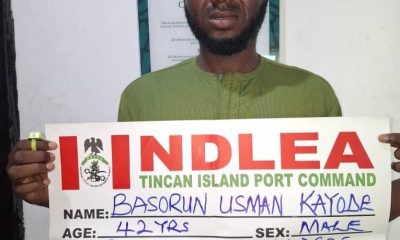
 News20 hours ago
News20 hours agoNDLEA nabs bandits supplier with drugs concealed in private part(Photos)
-

 News11 hours ago
News11 hours agoIsrael’s remote controlled bulldozers breaking ground in Gaza war
-

 Sports15 hours ago
Sports15 hours agoBREAKING! Arsenal hammer relegation Bound Ipswich 4-0
-

 News21 hours ago
News21 hours agoNUJ-FCT Chairman Urges Journalists to Embrace Spirit of Easter
-

 Sports14 hours ago
Sports14 hours agoEPL Results: Chelsea Boost UCL Hopes, Arsenal Win Big, Man United Lost
-
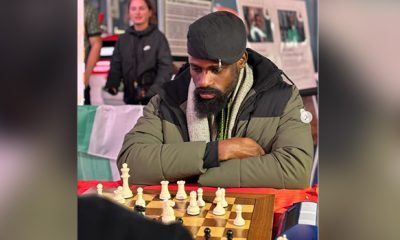
 News12 hours ago
News12 hours ago70-hour Chess Marathon: Onakoya reportedly breaks record set by Norwegians






